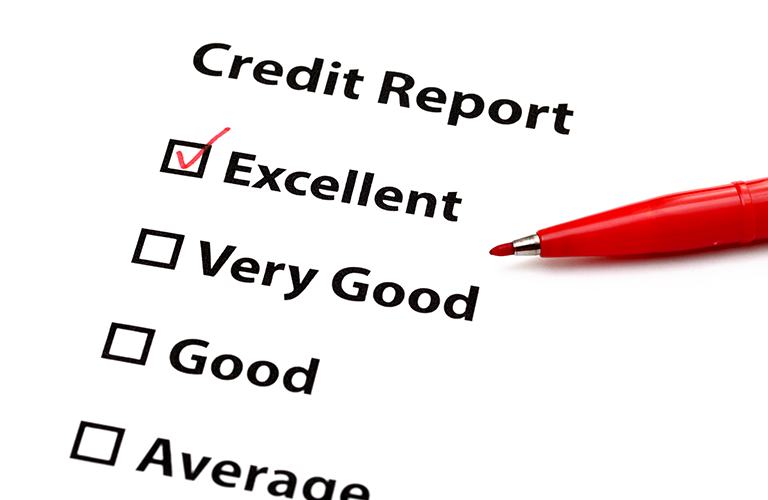A high interest rate environment and a possible recession may be starting to bear down on the financial health of your clients. As many Canadians are still recovering from a loss of income or from the recent pandemic, mortgage brokers can help emphasize the importance of healthy financial habits now to prepare for uncertainty in the future.
Canada’s economy remains volatile, even with inflation on a downward trend. The national inflation rate came in at 5.2% in February, sliding from 5.0% the month before, according to Statistics Canada. However, living expenses continue to accelerate, with the price of groceries eating away at monthly budgets, up 10.6% overall compared to last year.
Mortgage costs are also on the rise. Statistics Canada reported a 23.9% year-over-year increase in mortgage interest costs—the largest spike since July 1982. This quick increase has likely contributed to the 45% of first-time home buyers that are now spending more than a quarter of their earnings on their mortgage payments alone, according to the Bank of Canada. In addition, one in five borrowers with a CIBC mortgage are seeing their loan balances grow because their monthly payments aren’t able to cover even the interest portion of the loans, as reported by the Globe and Mail.
As many struggle to keep up with these increasing costs, it’s a good time to check in with your clients to see how they’re holding up. Ask how they’re feeling about their upcoming mortgage payments, and confirm whether they’re staying on top of their debt. In this environment, borrowers that are concerned about making their mortgage and bill payments need to take quick action to ensure their credit isn’t negatively impacted and they don’t put their financial health at risk.
Even in tough financial times, it’s critical for borrowers to keep their credit healthy or continue on the path to repair it. To help keep your clients feeling optimistic and in control of their financial health, share these five healthy habits to help future-proof their access to financing in case of an upcoming economic downturn.
 Monitor your credit regularly
Monitor your credit regularly
Don’t wait until things get difficult to survey your financial health. Monitor your credit regularly to understand your starting point, and quickly identify if your credit score increases or decreases suddenly. If your credit score is below 680, you’ll need to take steps to bring your score up so that you can eventually qualify for financing from traditional lenders. Checking in on your credit score regularly will also give you an opportunity to detect any errors on your report, which you can then dispute with your credit bureau.
Stick to your budget
Revisit your budget and update, as needed. Review family income and expenses by auditing recent bills and expenses from the past few months to see where you can cut back. Take a look at how your fixed expenses have increased over that time as well. Break down your spending by category, and ensure to prioritize your bills before spending on discretionary items. When finances are tight and the cost of expenses increase, checking in on your budget often will help you stick to your limits.
Meet your minimums
To keep your credit healthy, it’s important to understand how your score is calculated. Payment history counts towards 35% of your score, so making sure to not miss a payment is integral to maintaining or improving your credit. Making mortgage payments and minimum payments on all debts is always top priority to ensure your credit score stays strong. Once these are covered, focus repayment on high-interest debts such as credit cards. Any payment beyond the minimum will help you reduce the amount of interest charged – and help you make progress toward reducing your outstanding balance.
Start a “rainy day fund”
With lots of chatter on a possible economic downturn, it’s a good time to plan ahead and – if you haven’t already done so -start setting cash aside for possible emergencies. It’s best practice to have three to six months of income saved, but if that’s not possible, remember that every dollar counts.
To make it easier to build up your emergency fund, you can set up an automatic recurring transfer from your primary account into a savings account—no further action required. A best practice tip is to align the transfer date and frequency with your pay period. If that’s intimidating, you can also start off simpler. Keep a savings jar at home and add any loonies and toonies you’ve collected at the end of the week. Saving when you’re in a better financial position can help keep you and your credit healthy when times get tough.
Consolidate your debts
With cost of living increases, it might seem like an easy solution to rely on credit cards or other small loans to help you get through. However, Canadian credit card companies charge an average interest rate of 20% on unpaid balances.. If you continue to carry a large amount of debt on various credit cards, it may be difficult to understand the full picture of what you owe, and if your debt continues to grow, it could negatively impact your credit score. Remember that credit utilization plays a role in your credit score as well. Where possible, cancel additional credit cards to cut down on annual fees and reduce the potential for overdue payments.
If your credit utilization is high, consolidating debt can be a valuable option to help you reduce your interest costs, as well as improve your credit score and your cash flow. . Also, by converting revolving debt into an installment loan, you can set yourself up to repay this outstanding debt in full – and avoid the temptation to run up balances in the future. For example, a second mortgage through a private lender will allow you to leverage the equity in your home for easy access to credit at a lower rate—and you’ll only have to worry about making one monthly payment.
We’re here to help you and your clients
With high interest rates and uncertainty ahead, your clients may be feeling uneasy. Making their regular mortgage payments and staying in control of their debt may be much more difficult than they originally anticipated. Sharing these tips can help borrowers feel in control of their situation and keep them on track to maintain or improve their credit in any economic climate. Offer clients a judgment-free zone to talk through their concerns and be brutally honest about their financial position. Understanding the full picture will be key to helping them find a solution and ultimately avoid falling behind on their mortgage.
Remember that private lenders like CMI can offer financing where traditional banks cannot. We’re able to look at more than just the numbers to determine whether your clients can repay and get the deal done. For more information on how a private mortgage can help your clients, give us a call.
